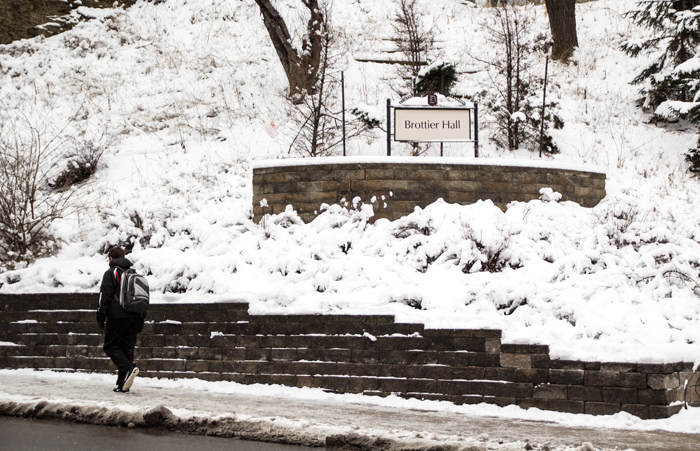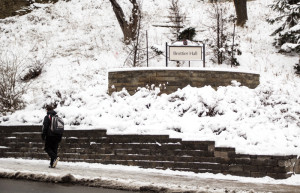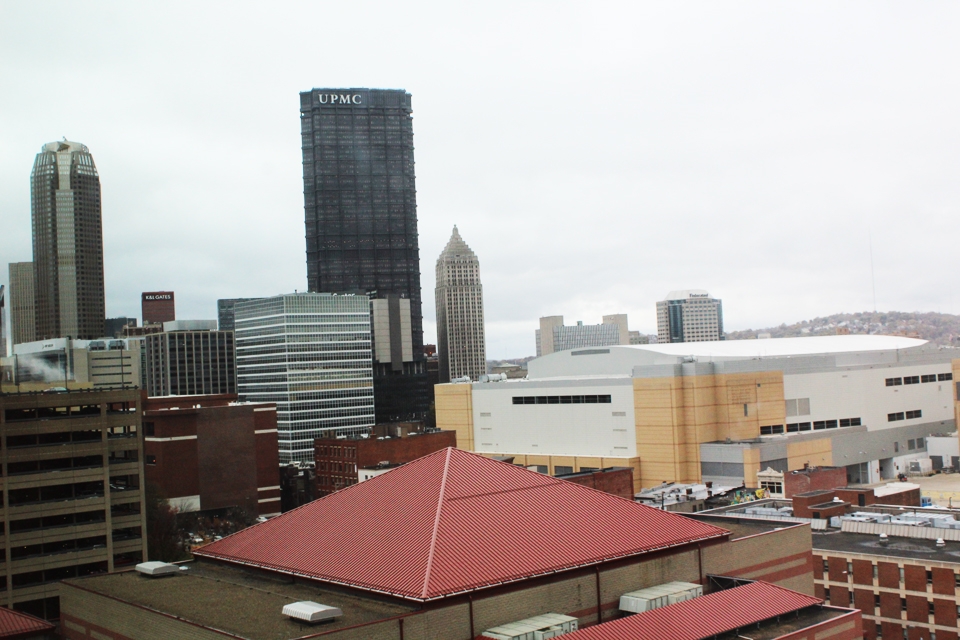

By Kaye Burnet | The Duquesne Duke
Duquesne students struggled across slick and snowy walkways on their way to classes Monday morning as school employees worked to clear the seven inches of snow that descended on Pittsburgh Sunday night.
Duquesne sophomore Nicholas O’Clair said that while Duquesne employees were clearly working hard to make campus safe for pedestrians, the school’s response was inadequate.
“Proceeding with caution, I ended up falling two times,” O’Clair said. “This was all before my first class. I ended up falling an additional two times before my day was over.
O’Clair is visually impaired, which makes avoiding slippery ice and snow patches difficult. However, O’Clair said he was not the only one having troubles.
“Yesterday alone, I witnessed three other individuals fall,” O’Clair said. “I feel that this is unacceptable.”
Sophomore Dayna Kirby watched as a girl slipped on Academic Walk and hit her head on a concrete planter.
“It looked really painful,” Kirby recalled.
While Duquesne Police have offered to drive O’Clair to his classes on snowy or icy days, O’Clair said that is not enough to address a problem that goes beyond the visually impaired.
“I personally feel that a plausible solution that Duquesne should look into is allowing more staff members, in the facilities department, to work on days of an impending storm,” O’Clair said.
Bill Zilcosky, director of building services at Duquesne, said snow removal is a combined effort between facilities management, grounds, maintenance, A.J. Palumbo Center staff and building services with up to 100 people involved.
“Staffing is not an issue,” Zilcosky said. “We work as efficiently as we can, but weather changes on a dime. You can’t be everywhere at once.”
According to Zilcosky, facilities management and the other campus departments worked together to prepare for the most recent snowfall.
“It was well-forecasted and we planned all last week for it, and updated or plans over the weekend,” Zilcosky said.
Zilcosky said the first priority on Monday was providing access to each building so students could get to classes, then clearing the remaining snow and ice when possible.
If weather is particularly extreme or dangerous, facilities management can make a recommendation to the University’s Cabinet to cancel or delay classes. This happened once last year due to cold weather, Zilcosky said, but was not considered Monday morning.
Students and faculty who observe a potentially dangerous snow or ice hazard on campus should contact facilities management, Zilcosky said, which logs every call to determine which areas need extra attention.
“Gathering information is the best way to make positive changes,” Zilcosky said.
Zilcosky reported that there are no current plans to hire additional facility management or grounds keeping staff or to change weather response procedures on campus.



